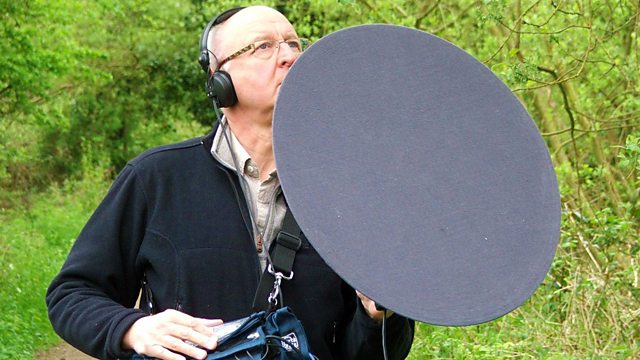Glacial Melt
The extraordinary and powerful sounds of a glacier calving are captured by wildlife sound recordist, Chris Watson.
Wildlife sound recordist Chris Watson first visited Antarctica in January 2010 and on his first morning, he was woken up by a howling blizzard.
It's the sound of arguably the most hostile environment on the planet. Whilst there, Chris was determined to record one of the greatest transitional events on the planet, the sounds of a glacier being transformed over the Antarctic summer from a solid mountain of freshwater ice into the salt water of the Ross Sea.
The place where he began recording was Cape Evans on Ross Island, by the hut 'Terra Nova' which was used by Captain Scott and his party during their ill-fated expedition to the South Pole in 1911.
The cinematographer Herbert Ponting who remained at Cape Evans later produced a film called ‘The Great White Silence. But this landscape is far from silent. West of 'Terra Nova', there is the Barne Glacier, a massive river of ice which flows down the slopes of Mount Erebus to the Ross Sea.
The recordings follow a journey beginnings inside the glacier with deep, powerful thumping sounds before it calves and huge blocks of ice crash onto the frozen sea. The sea ice buckles and cracks under the weight of these blocks producing extraordinary musical tones. Blocks of ice break off under pressure to form icebergs.
Then there's a gradual reduction as the sea ice undergoes its annual melt. Standing near a patch of open water Chris has an astonishing encounter with a minke whale which surfaces unexpectedly to breathe, and records Adelie penguins and the captivating scales of Weddell seals.
With the transformation complete, Chris watches and listens as Orcas break the surface of the waters to breathe in the air of the 'Great White Silence'.
Producer: Sarah Blunt
First broadcast on ���˿��� Radio 4 in 2015.
Last on
Chris Watson
Born in 1953 in Sheffield where he attended Rowlinson School and Stannington College, Watson was a founding member of the influential Sheffield based experimental music group Cabaret Voltaire during the 1970’s and early 1980’s. His sound recording career began in 1981 when he joined Tyne Tees Television. Since then he has developed a particular and passionate interest in recording the wildlife sounds of animals, habitats and atmospheres from around the world. As a freelance composer and recordist for Film, TV & Radio, Watson specialises in natural history and documentary location sound together with sound design in post-production.
His television work includes many programmes in the David Attenborough ‘Life’ series including ‘The Life of Birds’ which won a BAFTA Award for ‘Best Factual Sound’ in 1996. More recently Watson was the location sound recordist with David Attenborough on the ���˿���’s series ‘Frozen Planet’ which also won a BAFTA Award for ‘Best Factual Sound’ (2012).
Watson has recorded and featured in many ���˿��� Radio productions including; ‘’ and ‘The Wire’ which won him the Broadcasting Press Guild’s Broadcaster of The Year Award (2012), NATURE, Tweet of the Day, and ''.
Best of Natural History Radio Podcast
Broadcasts
- Thu 26 Mar 2015 13:45���˿��� Radio 4
- Mon 7 Sep 2015 09:30���˿��� Radio 4
- Thu 13 Jun 2024 09:30���˿��� Radio 4 Extra

